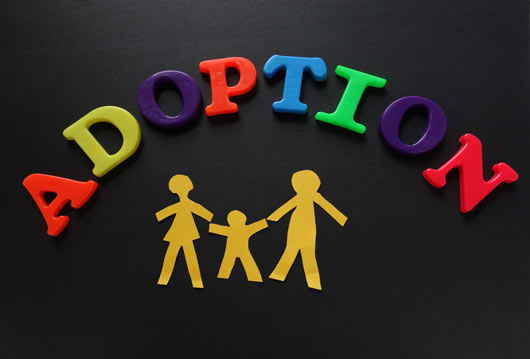
Are you wondering how to show your support for an adoptive family? If you aren’t familiar with adoption from other friends or family members, you might wonder what is the best way to help and support that new family. In some ways, bringing home a child through adoption is very similar to bringing home a baby from the hospital, but, in other ways, it is different. Here are five ways to support a family in your life that is adopting.
1. EVERYONE HAS TO EAT
Before the new arrival comes home, drop by some meals that can be frozen and served for their first few days as a new family. Those first few days (and even weeks) are critical and are often best done without a lot of guests because visitors can be too stimulating and confusing to the new family member. By dropping by meals before the family departs to pick up their new addition, you are giving them breathing room to seek only what they need in those first precious days home.
Also, offer to go grocery shopping for them on the day they will arrive back home from their adoption journey. Have those groceries in the fridge or in the cabinets well before they are scheduled to be home. This effort saves them from a critical worry when they return and allows them to really settle in.
Read Related: Best Books on Adoption
Finally, offer to coordinate meal delivery. You can coordinate multiple frozen meals being dropped off before the family leaves to pick up their new loved one and also arrange for delivered meals once the family is ready to welcome visitors into their home for a few minutes (during the meal exchange) to meet the new addition.
2. DON’T CALL, THEN DO CALL
In the family’s first few days home, resist calling too much. It’s stressful to have to remember to return phone calls in the midst of everything else, and it is hard to even put a thought together. Give them permission to do what they most need in those first days home.
Then, once you are more regularly connecting, always call before you stop by. It helps them strategize around nap and feeding times or even graciously turn down the visit if it’s not a good time. And always ask, “Is this a good time? We can plan for a different time if that’s better.”
3. RESPECT LIMITS
In some ways, parenting situations are all similar. In other ways, adoptive parenting is distinctly different—just like parenting a child with a special need is different. In fact, parenting through adoption does mean being sensitive to a special need—not because the child might have a diagnosable condition—but because the child’s life has taken a different path that often requires very deliberate approaches when it comes to attachment, stimulation, and support among other things. First and foremost, respect that the parenting experience in adoption is always unique and that the parents in that situation know the most about what to do.
Next, help your loved ones observe the limits they set. If they suggest they can only visit for thirty minutes, help them get out the door by the thirty minute mark. It is such a loving gesture to support others in the limits they need to be set.
Also, ask first about everything from holding the child to giving him a cookie. Show the parents that you respect their right and ability to make the best decisions for their child and show the child that you understand who their parents are and who should be making the decisions for them. Whatever it is, remember that what you do could undo something the parents have been working towards for a long time. Asking first is a gift to everyone.
4. DO THE DIRTY WORK
Offer to come over and give support to the parent—doing laundry, cleaning, mowing the lawn, etc. The daily-ness of maintaining a household can be really overwhelming when you are helping a new family member get to know you and what a family is, and it’s hard to let yourself off the hook for doing the dishes or the laundry. So you do it and miss valuable, precious moments with your new loved one or valuable, precious moments where you could be sleeping. Having someone help is an incredible gift.
5. LISTEN
Ask questions. How are you doing? What can I do? What is going well? What’s hard? How can I be more helpful? What do you need? How was the journey? What have you learned? What helps? It is so nice to have a willing listener as you process the experience.











